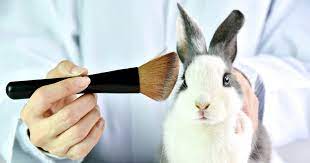
Advocating for Animal Rights in Cosmetics Production
The cosmetic industry has long been under scrutiny for its use of animal testing in product development. Despite advancements in technology and the availability of alternative testing methods, many companies still resort to cruel practices that involve animals. This project aims to shed light on the ethical issues surrounding animal testing in cosmetics production and advocate for the rights of animals to live free from harm and exploitation.
Animal testing in cosmetics production involves subjecting animals, such as rabbits, mice, and guinea pigs, to painful experiments to assess the safety and efficacy of cosmetic ingredients and finished products. These tests can cause immense suffering to animals, including skin irritation, organ damage, and even death. Despite widespread public opposition and growing regulatory restrictions, animal testing remains prevalent in many parts of the world
METHODS
- Research: Conduct a comprehensive review of literature and case studies related to animal testing in the cosmetics industry, including its historical context, current practices, and ethical implications.
- Awareness Campaign: Develop educational materials, such as brochures, infographics, and social media posts, to inform the public about the realities of animal testing and promote cruelty-free alternatives.
- Advocacy: Collaborate with animal rights organizations, advocacy groups, and policymakers to push for legislative measures that ban or restrict animal testing for cosmetics.
- Consumer Engagement: Encourage consumers to make informed purchasing decisions by providing them with resources to identify cruelty-free brands and products.
Animal testing in cosmetics production is a practice that contradicts the principles of compassion and ethical responsibility. By advocating for animal rights and promoting cruelty-free alternatives, we can create a future where beauty products are developed without causing harm to innocent creatures. Together, we can make a difference in the lives of animals and build a more ethical and compassionate cosmetics industry.
Maria Senounda, A5

